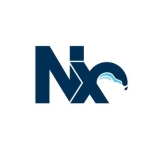What is our primary use case?
I use Jenkins for the continuous integration and continuous delivery phases of my pipeline. For the continuous integration part, we use GitHub with Webhook. If we have a development environment and the developer pushes anything, Jenkins will trigger the job right away. But if it is going to stage all the production environments, then Jenkins will start the job, and the developer will create a pull request.
We can see that the test cases have passed, and the GitHub branch is ready to be merged into the feature branch. And for the continuous delivery pipeline, we are pushing things ourselves through Helm. So whenever we have to deploy something, we have created or developed our stages, through which we use Helm charts and deploy our solution.
Since we are using microservice architecture, most of our infrastructure is Kubernetes-based, which means we use docker containers inside that and cloud environments to spin up our solutions quickly. Jenkins is running inside Kubernetes, and Jenkins has some hooks attached to it. And with the plugins attached, you can spin up the container on the go whenever we have to build a job. And when the job is complete, the container is deleted. It's not like we have some node in Jenkins. The architecture comprises a master and a slave node, and you can run jobs on the slave node.
Our slave nodes work under both containers, which we are only spinning up when we need. And when we are done, we are just stripping them out instead of having our virtual machines running all the time. That is an interesting aspect of this architecture for us. Microservices waste architecture, so we use Kubernetes infrastructure with containers to spin up our slave nodes and handle the workload or the computing.
We use Jenkins for everything. We want to empower developers to have the confidence to deploy their solutions themselves into production instead of asking us as an operations guide. Even if they have to create a repository in GitHub, we have scripts behind Jenkins that can go ahead and make these for them. It's a core component of our development pipelines and developers' lives in our organization.
How has it helped my organization?
We used to have around 30 to 40 services, which we had to use in our microservices architecture. Now, when we have to deploy things due to the same code base, we have to write the same code every time and repeatedly in the Jenkins file. It's a monotonous job, and we cannot innovate. We are just copy-pasting the Jenkins file and only changing a few things in it. That wasn't the kind of DevOps experience we want. We want some customization instead of a mundane task. But there is an option in Jenkins called Jenkins Shared Library, where we can write our own group code. Now we are using it like a programming language in the Jenkins file.
We only have to call the object and inside that object, we have to call the function or methods we want. Our Jenkins files, which were previously 309 lines were reduced to 220 or 230 lines by only calling the objects and the specific parameters. If I want Java, I will provide Java, so it is going to call the specific stage, defining my library for Java-based code. If it is NTM, it is going to call the different libraries along with the right tools for load-based applications and testing. That was a satisfying experience. As a DevOps team, we spent a lot of time creating good value in the pipeline stream instead of spending all our time copy-pasting the Jenkins file.
What is most valuable?
The most valuable aspect of Jenkins is pipeline customization. Jenkins provides a declarative pipeline as well as a scripted pipeline. The scripted pipeline uses a programming language. You can customize it to your needs, so we use Jenkins because other solutions like Travis and Spinnaker don't allow much customization. We can only use the declarative pipelines they provide.
We can use Jenkins through the GUI and create customized methods. Its GUI is just like Java, so we can make our classes and define our custom methodologies. We can do whatever we want and customize as much as we wish to in any programming language.
What needs improvement?
Jenkins is a Java-based solution, and it's a hassle to initially spin up the solution in Java. Jenkins is highly customizable through plugins, but it has limited out-of-the-box capabilities. We have to take advantage of the community configurations available to us.
And I don't care too much for the Jenkins user interface. It's not that user-friendly compared to other solutions available right now. It's not a great user experience. You can do just fine if you are a techie, but it would take a novice some time to learn it and get things done.
Buyer's Guide
Jenkins
April 2025
Learn what your peers think about Jenkins. Get advice and tips from experienced pros sharing their opinions. Updated: April 2025.
850,671 professionals have used our research since 2012.
For how long have I used the solution?
I used Jenkins extensively this whole year. Prior to that, I was using it for consolidation stuff, but this year I have used it extensively for both installations and DevOps pipelines.
What do I think about the stability of the solution?
There have been no crashes. I would say that the only important thing is downtime. Since it is a double application, the reboot takes a long time. It would be nice if it took less time to boot. Sometimes it takes around 5 to 10 minutes to boot with all the plugins. It would be great to reduce the maintenance time so that the developers don't even notice when it has been updated. But when we update, we need to announce downtime for that.
What do I think about the scalability of the solution?
We have a master node, and the slave nodes are containers, so it's quite robust and scalable with that plugin for us. Even if we have a lot of jobs running at one time — sometimes it's 30 to 50 jobs running — it's cloud infrastructure. It's going to spin up automatically. The nodes are auto-scaling for the Kubernetes, and you can spin up containers on top of that, so it's quite scalable for us.
How are customer service and support?
We haven't needed Jenkins support yet.
How was the initial setup?
The initial configuration with Kubernetes is a little bit clunky. Maybe we don't know how to do it because things are ever-evolving, or perhaps there is a right way that we do not know right now. This is one of the pain points. If I have to update my cluster, or there is some disaster recovery mechanism, or I have to add something in the configurations, there is no out-of-the-box tool available in Jenkins.
If I'm going to change my configurations in the conflict maps, it will not reload by itself. I have to add another sidecar container, which always looks for my configuration change updates and adds it into Jenkins. That was my pain point, and that is the same in the initial configuration part that you have to figure out. Jenkins cannot provide you with something out of the box for continuous change and updates. You have to use some third-party plugins for the sidecar containers.
The initial deployment was relatively easy because we used the UI to configure everything. Then there is one part of the configuration code in Jenkins where we have to take the configuration and put it in the conflict map. Whenever we have to change something, we only need to change the configuration map. And it reloads that part.
The code portion of the configuration is very lengthy, and it isn't easy to figure out what should go into the configuration and what is unnecessary. There is a lot of junk in that. This is not good for the developers to put in their configuration size, but that was their end. Figuring that out takes time. That said, it's a one-person job. You don't need too many people if you know what you are doing.
After installation, Jenkins requires some maintenance, like backup and configurations. If there are some security breaches, Jenkins sends out notifications that you need to update these plugins because there were some security flaws. Sometimes we have to reboot Jenkins to apply these updates, which requires some downtime. Most plugins don't need a reboot, but we have to reboot Jenkins if it involves some core components.
What's my experience with pricing, setup cost, and licensing?
We used the free version. We didn't need anything specific on the support side for that. It's totally customizable, and if you get so much good out of an open-source project, then you don't need to go for any support model. That was quite good, and community support has been good enough for us.
Which other solutions did I evaluate?
I looked into Travis, and I was primarily looking for customization. Travis wasn't as customizable as Jenkins.
What other advice do I have?
I would rate Jenkins between seven and eight because I'm not that much of a GUI user, so I can use it. And if I have my configurations in place, I don't have to go inside and look at the UI again. It's a good solution for us.
Which deployment model are you using for this solution?
Public Cloud
Disclosure: I am a real user, and this review is based on my own experience and opinions.




















